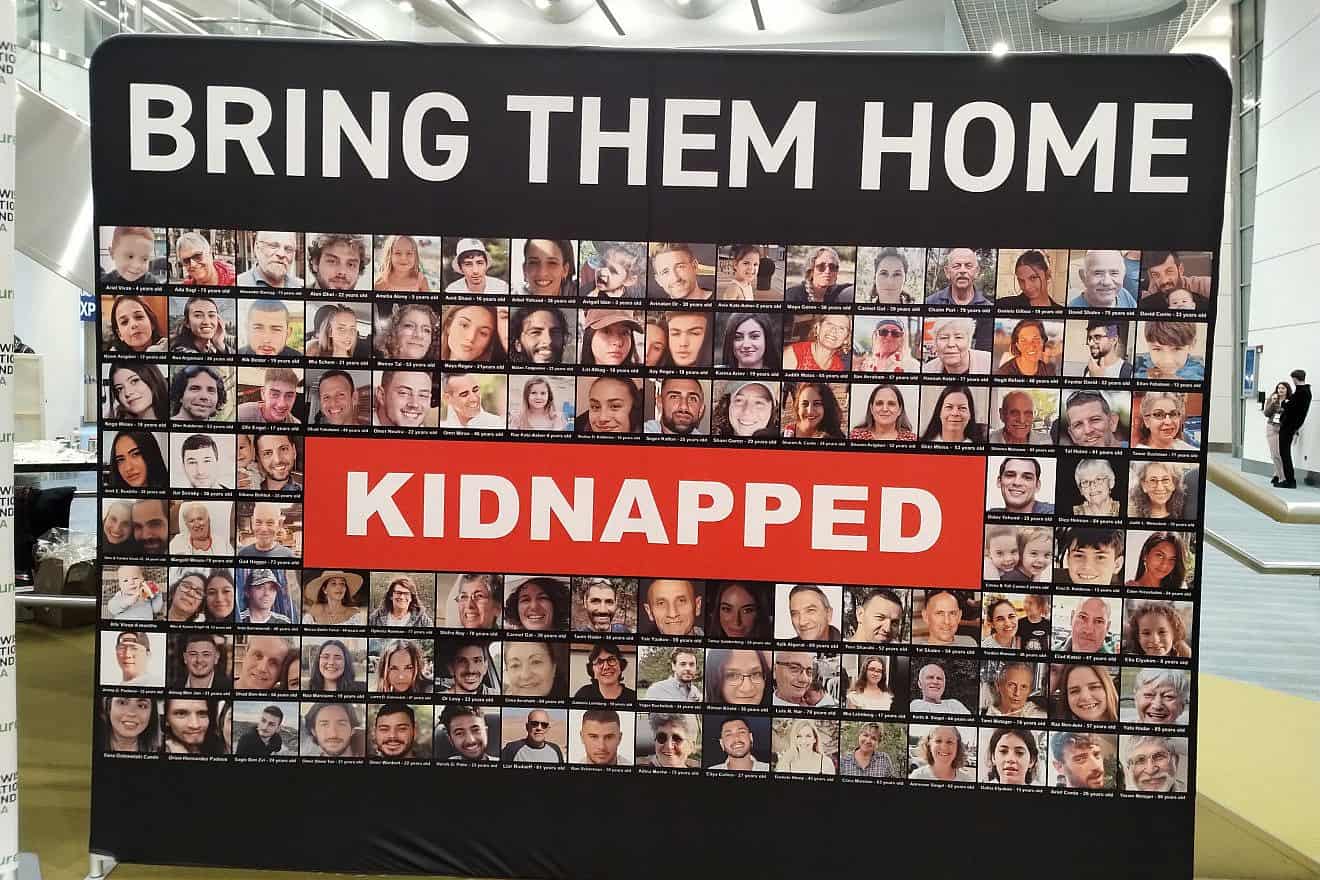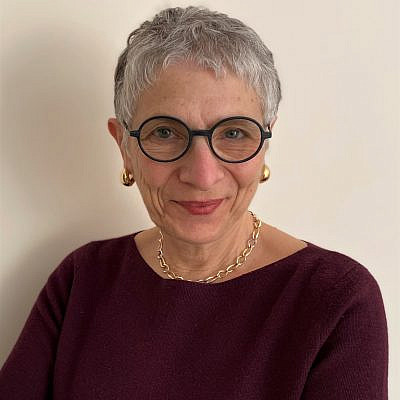 16.01.2024, kibuc Nir Oz zniszczony podczas ataku Hamasu 7.10.2023
16.01.2024, kibuc Nir Oz zniszczony podczas ataku Hamasu 7.10.2023
 Zamordowany kibuc Nir Oz. “To koniec złudzeń w tym kraju” [LA REP]
Zamordowany kibuc Nir Oz. “To koniec złudzeń w tym kraju” [LA REP]
Francesca Caferri
la Repubblica
Byli zakładnicy i ci, którzy przeżyli atak Hamasu, mówią: “Tutaj nadal wierzyliśmy w pokój. Już nie mamy złudzeń”.
Korespondencja z kibucu Nir Oz (Izrael)
Dwa dni po tym, jak wypuszczono ją z Gazy, gdzie spędziła 54 dni w rękach Hamasu, Jelena Trufanowa wróciła do domu. „Moje życie było tutaj” – mówi, zdejmując plastikowe rękawiczki, których używa, gdy karmi koty.
“Tutaj”, czyli w Nir Oz, zaledwie półtora kilometra od granicy ze Strefą Gazy, pięć kilometrów od Chan Junus: 7 października napastnikom, którzy obalili mur oddzielający Izrael od Strefy Gazy wystarczyło kilka minut na motorach, by tu dotrzeć.
Również z tego powodu oraz dlatego, że jest naprawdę niewielki, ten kibuc został zniszczony w stopniu znacznie większym niż inne: z 417 mieszkańców 46 osób zabito na miejscu, 117 uprowadzono. Jak dotąd udało się uwolnić – po negocjacjach z udziałem Kataru i Egiptu – 40, w tym Jelenę i jej 73-letnią matkę.
Reszta zakładników z Nir Oz jest wciąż w niewoli: wśród nich Sasza, syn Jeleny. Jej mąż Witalij został zabity, gdy próbował bronić kibucu. Żadne inne osiedle nie zapłaciło proporcjonalnie większej daniny z krwi w tamtejszą czarną sobotę w Izraelu. Wszyscy tu zadają sobie coraz więcej pytań o przyszłość Izraela – o to, co się wydarzyło i co może się znowu wydarzyć.
„Mój dziadek przez całe swoje życie wierzył w pokój” – opowiada Daniel, wnuk Odeda Lifshitza. 83-letni Lifshitz, dziennikarz na emeryturze, przed 7 października razem z żoną zajmował się przewożeniem na tę stronę granicy, do izraelskich szpitali, ludzi z Gazy, którzy potrzebowali zaawansowanej pomocy medycznej. Teraz znajduje się w niewoli Hamasu.
Lifshitz był także pierwszym izraelskim dziennikarzem, który opowiedział światu o masakrze w Sabrze i Szatili w Libanie w 1982 r. Jego archiwum dotyczące tamtych czasów spłonęło tak jak cały dom. „To okropne uczucie – zdawać sobie sprawę, że on jest tak blisko, a my nie jesteśmy w stanie go uwolnić” – mówi Daniel, wskazując budynki w Chan Junus majaczące na horyzoncie. I dodaje: „Polityków proszę, by wzięli przykład z mego dziadka, który całe długie życie działał na rzecz pokoju i nadziei. Czas na śmiałe i odważne decyzje”.
 16.01.2024, kibuc Nir Oz zniszczony podczas ataku Hamasu 7.10.2023
16.01.2024, kibuc Nir Oz zniszczony podczas ataku Hamasu 7.10.2023
Srulik Kalvo słucha go w milczeniu: jego 85-letni ojciec Amiram jest najstarszym zakładnikiem. Jego matka Nurit została wypuszczona wraz z Jochewed Lifshitz. Kiedy zabiera głos, jego ton jest inny: „Nasza społeczność, ludzie, którzy tu żyli, całe życie im pomagali. Teraz jednak ten, który zawsze chciał pokoju, jest zakładnikiem tam”.
Tu i tam, my i oni – słowa, które w Nir Oz nigdy nie brzmiały tak wyraźnie. „Ja też wierzyłem w pokój – przed 6 października. Wszyscy tutaj wierzyli. W soboty, gdy byliśmy dziećmi, prowadzano nas na manifestacje za pokojem. I jak nam odpłacono?” – odpowiada z goryczą Srulik, gdy prosimy, żeby wyjaśnił swoje pierwsze wykrzyczane słowa.
Nir Oz jest dziś opuszczone: są tu tylko ci, którzy – jak Jelena – przyszli szukać kawałków przeszłości: może to być jakiś przedmiot, a może być cała zawartość mieszkania do wywiezienia, ponieważ nikt tu już nigdy nie wróci na stałe.
To, co od pierwszej chwili robi tu największe wrażenie, to intensywna zieleń trawników, rowery bez łańcuchów, drzwi tak cienkie, że hamasowcy wyważali je bez najmniejszego trudu. Oraz Gaza, tak bliska, że gołym okiem widać jej zabudowania.
“95 proc. nieba, 5 proc. piekła” – odpowiadają mieszkańcy kibuców na południu Izraela, gdy słyszą pytanie, co ich tu sprowadziło.
Ale kryje się za tym coś więcej, marzenie jednego specjalnego pokolenia, marzenie Lifshitzów i Kalvo, którzy wierzyli, że Izrael będzie istniał tylko wtedy, gdy jego obywatele będą fizycznie obecni na samych krańcach jego terytorium. Ideę tę w tych stronach wiązano z dawną syjonistyczną lewicą – pomimo słabego wyniku w skali kraju w ostatnich wyborach tutaj akurat partie progresywne, liberalne wypadły nieźle, zwłaszcza Merec, który jest otwarty na dialog z Palestyńczykami.
Wielu z tych, którzy przez lata głosowali na tę partię, dziś jest w niewoli w Gazie, a ich dzieci, wnuki i krewni zastanawiają się, czy nie zostali oszukani. „Mamy dość hipokryzji: proszenie nas, żebyśmy tu trwali w imię Izraela i czekali, aż coś się wydarzy, jest teraz podłością” – mówi Yosi Shnaider, którego rodzina jest kolejnym symbolem dramatu.
Jego kuzyni Ariel i Kfir mieli odpowiednio cztery lata i dziewięć miesięcy, kiedy zostali uprowadzeni wraz z rodzicami Yardenem i Shirą. Za dwa dni Kfir skończy rok: w jego przedszkolu, opuszczonym, przygotowano pomarańczowe balony (kolor jego włosów), chociaż wiadomo, że nie weźmie udziału w urodzinowym przyjęciu. I że być może już nigdy nie wróci: w sieci pojawiło się nagranie sprzed kilku tygodni, na którym ich ojciec ogłasza śmierć żony i dzieci i oskarża rząd o to, że ich nie uratował. Nadal nie wiadomo, czy to prawda, informacje o zakładnikach to niemal tabu.
Czy idea współżycia dwóch narodów ma szanse przetrwać bez pokolenia, które ją pielęgnowało i które zapłaciło za nią najwyższą cenę? Jest za wcześnie, by zadawać to pytanie w Nir Oz, ale słupy czarnego dymu niedaleko ogrodu Lifschitzów, po drugiej stronie granicy, nie wróżą niczego dobrego.
tłum. Bartosz Hlebowicz
Zawartość publikowanych artykułów i materiałów nie reprezentuje poglądów ani opinii Reunion’68,
ani też webmastera Blogu Reunion’68, chyba ze jest to wyraźnie zaznaczone.
Twoje uwagi, linki, własne artykuły lub wiadomości prześlij na adres:
webmaster@reunion68.com




